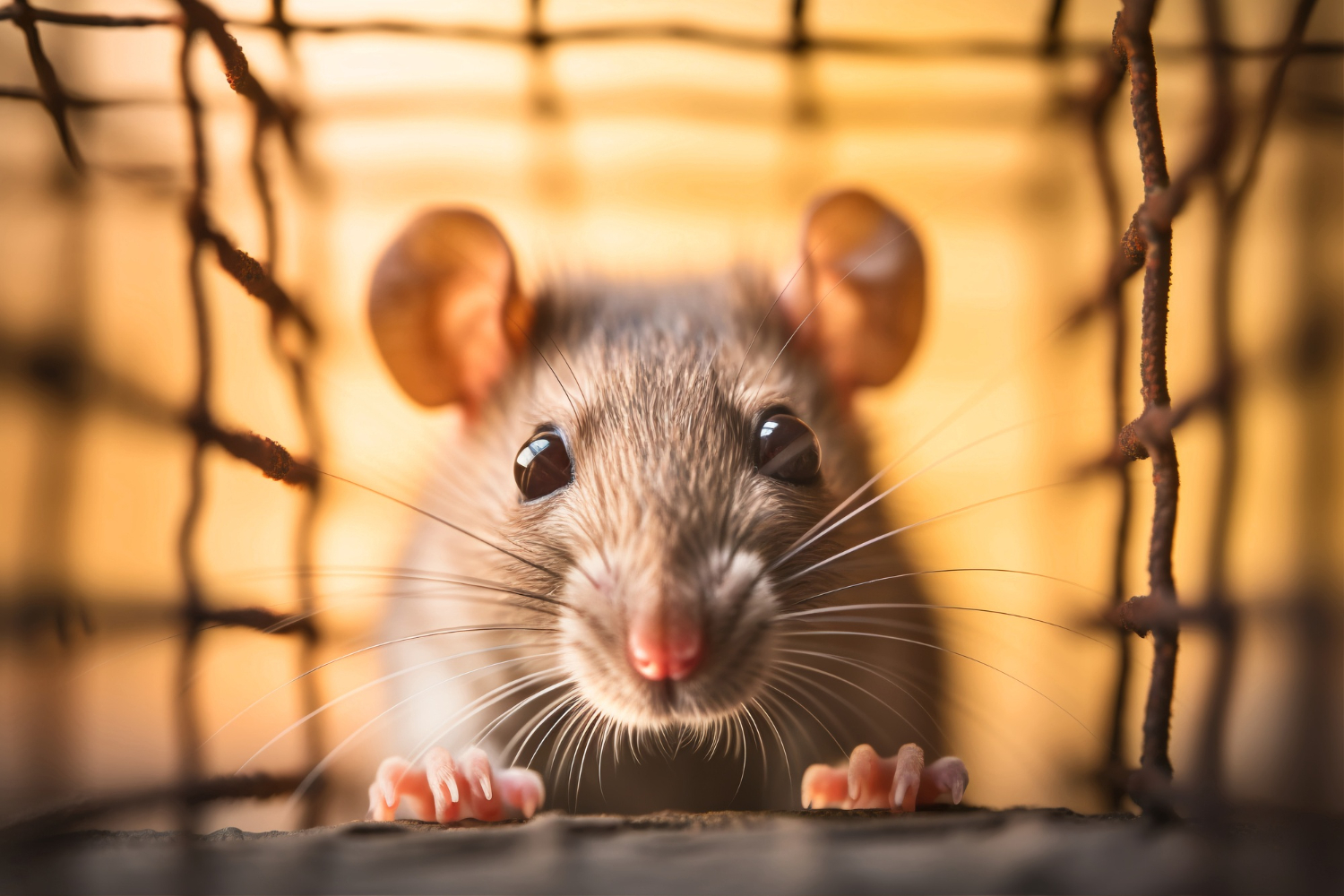Introduction To Musophobia And What It Really Means
Musophobia is the medical term for an intense fear of mice or rats. It goes beyond simple dislike or discomfort. People with this phobia feel extreme panic, stress, or anxiety even when they only think about mice. The fear may start in childhood or develop later in life, and it can affect daily routines and confidence.
Someone with musophobia understands that the fear may not be logical, but their body reacts automatically. The sight of a small mouse can trigger shaking, sweating, or the urge to run away. For many, it is not just the animal itself but the movement, the surprise, or the idea of mice being dirty or dangerous that creates fear. This phobia is real, and recognizing it is the first step toward managing it.
Common Signs And Physical Symptoms Of Musophobia
Musophobia can show up through emotional reactions, physical changes, and behavioral responses. A person may suddenly feel nervous, restless, or overwhelmed when they sense a mouse nearby. They might also overthink the possibility of seeing one, and this constant worry can drain energy.
Physical symptoms are common and can include shaking hands, rapid breathing, or a fast heartbeat. Some people feel dizzy or nauseous, while others may sweat or freeze in place. These reactions are part of the body’s natural fear response, even if the situation is not actually dangerous.
Behavioral signs can appear in daily life. A person may avoid certain places, like basements, old houses, or storage areas, because they fear mice could be there. They might also check corners, doors, or furniture more than usual. This kind of behavior becomes exhausting over time and can limit activities.
In severe cases, someone with musophobia may experience a panic attack. This can make the fear even stronger because the person begins to fear the feeling of panic itself. Understanding these symptoms helps people realize they are not alone, and support is available.
Psychological And Emotional Causes Behind Musophobia
Musophobia often has emotional roots. Many people develop it after a bad experience with mice, such as being startled by one running across the room. Childhood memories can also play a large role, especially if someone grew up in a place where mice caused stress or fear.
Sometimes this phobia is learned through family or environment. If parents or relatives showed intense fear of mice, a child might absorb that reaction and carry it into adulthood. Media also influences fear; movies and stories often show mice as pests, dirty animals, or dangerous creatures.
In some cases, musophobia is linked to general anxiety or trauma. People who already feel out of control in life may react strongly to unexpected situations, and seeing a mouse can trigger that sense of chaos. It becomes not just about the animal but about the fear of sudden surprises.
Emotional sensitivity and personality can also play a role. Some individuals are naturally more cautious or startled easily. When these traits combine with a scary moment involving mice, the fear can grow stronger over time.
Everyday Situations That Trigger Musophobia Reactions
Daily activities can become stressful for someone with musophobia. Entering a dark room, opening a cupboard, or walking in a quiet hallway may cause tension. People fear that a mouse might suddenly appear, and this anticipation keeps them alert and nervous.
Homes, especially older buildings or rural areas, can trigger constant worry. Small sounds like rustling, scratching, or squeaking may cause panic because they remind the person of mice. Even harmless noises from the wind or plumbing can become frightening.
Public places can also trigger reactions. Storage rooms, parks, garbage areas, or even grocery stores can make someone anxious. If they see a picture of a mouse or hear someone talk about rodents, anxiety can return quickly.
Nighttime is often the hardest. When everything is quiet, people with musophobia may imagine mice hiding or moving around. This fear can disturb sleep and affect energy the next day, creating a cycle of stress and worry.
How Musophobia Affects Lifestyle And Mental Well-Being?
Musophobia can influence a person’s lifestyle in ways others may not notice. Some people avoid traveling, moving to new homes, or visiting friends who live in older buildings. They may feel safer only in places where they believe there is no chance of seeing mice.
Daily stress increases when someone constantly checks for signs of rodents. This can lead to tiredness, irritability, and difficulty focusing. Work life might suffer, especially if the job involves warehouses, farms, or outdoor spaces.
Emotionally, the fear can create embarrassment or frustration. People may feel ashamed or misunderstood because others think the fear is irrational. This social pressure can reduce confidence and increase loneliness.
Mental health can also be affected long term. Constant fear raises anxiety levels, and over time, the body remains in a state of stress. Without support, musophobia can contribute to depression, sleep problems, and decreased quality of life. Realizing this impact encourages people to seek help and make changes.
Scientifically Proven Treatment Options For Musophobia
Professional treatment helps individuals manage musophobia and regain control. Cognitive Behavioral Therapy, often called CBT, is one of the most successful methods. It focuses on changing thoughts and reactions toward mice, helping the brain form healthier responses.
Exposure therapy is another proven approach. In a safe and controlled environment, a therapist gradually introduces the idea or image of mice to reduce fear. Over time, the person learns to stay calm, and the fear becomes weaker.
Some people benefit from medication, especially if the phobia is linked to strong anxiety. Doctors may prescribe short-term medicines to ease panic or stress while therapy takes place. Medication alone is not a cure, but it supports the recovery process.
Relaxation and breathing techniques are often part of treatment. These methods teach the body to stay calm during stressful moments. With consistent practice and professional guidance, many people see progress and feel more confident facing daily situations.
Practical Self-Help Tips To Gradually Overcome Musophobia
Self-help techniques can strengthen progress and bring comfort. Understanding the fear is a first step. When someone recognizes that musophobia is a common and treatable condition, they feel less alone and more hopeful about improvement.
Practicing relaxation daily helps control sudden reactions. Deep breathing, gentle stretching, or meditation can make the body less sensitive to stress. Over time, these small habits build emotional strength and balance.
Gradual exposure can be useful when done safely. Looking at cartoon images of mice or reading simple information about them can reduce fear slowly. The goal is not to rush but to become more familiar with the thought of mice without panic.
Talking to supportive friends or family makes a difference. Sharing experiences reduces shame and builds confidence. A positive environment encourages courage, and each small step forward becomes easier. With patience and self-compassion, progress becomes real and lasting.
Conclusion And Expert Advice For Musophobia Recovery
Musophobia may feel overwhelming, but it is a manageable condition. The fear of mice does not define a person, and seeking help is a sign of strength, not weakness. When someone understands their reactions and learns proper techniques, the fear loses power.
Professional support, along with personal effort, creates the best chance for recovery. Every small improvement counts, and consistency is more important than perfection. With time and practice, many people learn to live calmly again, even in situations that once caused fear.
Remember that musophobia is common, and treatment options are available. If the fear affects daily life, reaching out to a therapist can bring relief and confidence. A life free from constant worry is possible, and taking the first step is the beginning of that journey.
With patience, encouragement, and the right guidance, musophobia can be managed effectively. Recovery is a gradual path, but the results bring peace, comfort, and a renewed sense of control. You do not have to face it alone — support is always within reach.
My name is Mustafa, and I have been blogging for over 5 years. I am passionate about sharing complete, accurate, and helpful information with my readers. Along with managing content on The Matcha Read, I also contribute blog posts to premium websites. My goal is to provide valuable insights in a clear and easy-to-understand way, so every reader walks away with useful knowledge.










